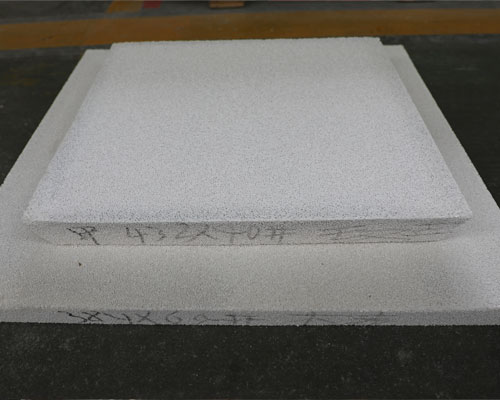Aluminum Foundry Ceramic Filter removes the debris from the molten aluminum, effectively improving the economic benefits of the aluminum rod factory.
Larger inclusion particles can be removed from molten aluminum, while inclusion particles of 100 μm or smaller account for most of the inclusions and are difficult to remove. In particular, it is difficult to remove fine inclusion particles around 10-25 μm, but this is a necessary condition for obtaining high-quality aluminum alloys.
In order to remove such fine inclusions, the traditional filter needs to have a finer mesh. However, when the filter screen is too fine, when the molten aluminum contains a large amount of inclusions, there may be a practical problem that the filter screen is clogged during short-term operation, resulting in a shortened life of the filter screen.
Therefore, in the case of using aluminum scraps of such aluminum alloy products as part or all of the aluminum raw material, it is necessary to remove the inclusions at least from the molten aluminum obtained by melting the aluminum raw material. Therefore, in addition to the refining process of degassing the molten aluminum using a flux, Aluminum Foundry Ceramic Filter is also used to remove the inclusions in the molten aluminum.
The alumina foam ceramic filter can effectively remove large inclusions and absorb micron-sized particles of inclusions in molten aluminum, which can improve surface quality, improve product performance, improve microstructure, and increase yield. Ceramic foam filters are widely used in the production fields of aluminum profile, aluminum foil, aluminum alloy, and so on.
The ceramic foam filter has a high pore size, high through-hole rate, sufficient sintering, good flexural and compressive strength, ensuring a high-efficiency filtering effect. AdTech has a variety of ceramic foam filter plates with pore sizes ranging from 10 to 60 PPI, with a complete range of sizes. Foam ceramic filter plates are widely used in the filtration and purification of various aluminum and aluminum alloy melts in continuous casting, semi-continuous casting, gravity casting, and low-pressure casting. In addition to general specifications, it can be designed and manufactured according to customer needs.

